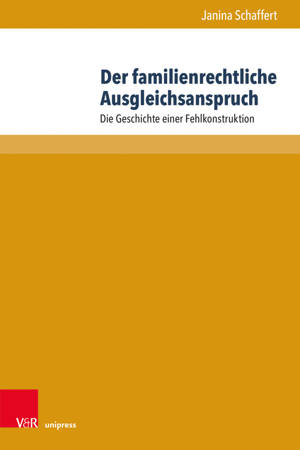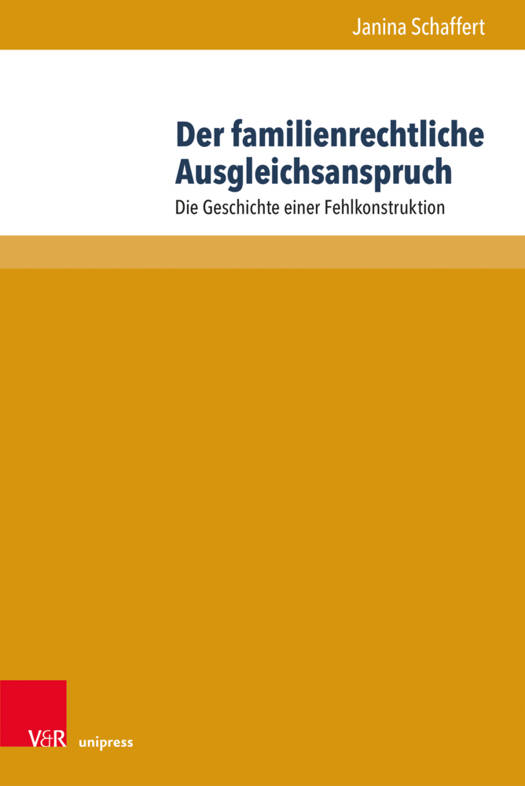
- Afhalen na 1 uur in een winkel met voorraad
- Gratis thuislevering in België vanaf € 30
- Ruim aanbod met 7 miljoen producten
- Afhalen na 1 uur in een winkel met voorraad
- Gratis thuislevering in België vanaf € 30
- Ruim aanbod met 7 miljoen producten
Omschrijving
Der Bundesgerichtshof schuf den familienrechtlichen Ausgleichsanspruch 1959, um einen Ausgleich für geleisteten, aber nicht geschuldeten Kindesunterhalt zu ermöglichen. Janina Schaffert zeigt nicht nur die zahlreichen Kritikpunkte an dem Grundsatzurteil sowie der heutigen Ausgestaltung und seiner Durchsetzbarkeit auf, sondern bietet einen Lösungsweg auf Basis des geschriebenen Rechts, dessen Vorteile unverkennbar sind. Anhand der genetisch-historischen Analyse zeigt die Autorin, dass die dem familienrechtlichen Ausgleichanspruch zugrunde liegende Problematik bereits lange vor dem Grundsatzurteil bestand. Die von Janina Schaffert entwickelte Lösung steht daher im Einklang mit der historischen Entwicklung des Regressanspruchs und ermöglicht im Gegensatz zum BGH einen gerechten Ausgleich.
1959 the Federal Supreme Court established the family law compensation claim to faciliate compensation in respect of child support which has been paid but is not owed. Janina Schaffert does not only outline the numerous points of criticism of the fundamental judgment as well as the current form and its practicability, but also offers a solution based on written law, of which the advantages are undeniable. The genetic-historical analysis in particular shows that the problem underlying the family law compensation claim existed long before the leading decision. The solution developed by Janina Schaffert is in line with the historical development of the right of recourse and in contrast to the Federal Supreme Court enables a fair compensation.
Specificaties
Betrokkenen
- Auteur(s):
- Uitgeverij:
Inhoud
- Aantal bladzijden:
- 2
- Taal:
- Duits
- Reeks:
- Reeksnummer:
- nr. 37
Eigenschappen
- Productcode (EAN):
- 9783847112570
- Verschijningsdatum:
- 10/05/2021
- Uitvoering:
- Hardcover
- Formaat:
- Genaaid
- Afmetingen:
- 155 mm x 231 mm
- Gewicht:
- 1152 g

Alleen bij Standaard Boekhandel
Beoordelingen
We publiceren alleen reviews die voldoen aan de voorwaarden voor reviews. Bekijk onze voorwaarden voor reviews.







